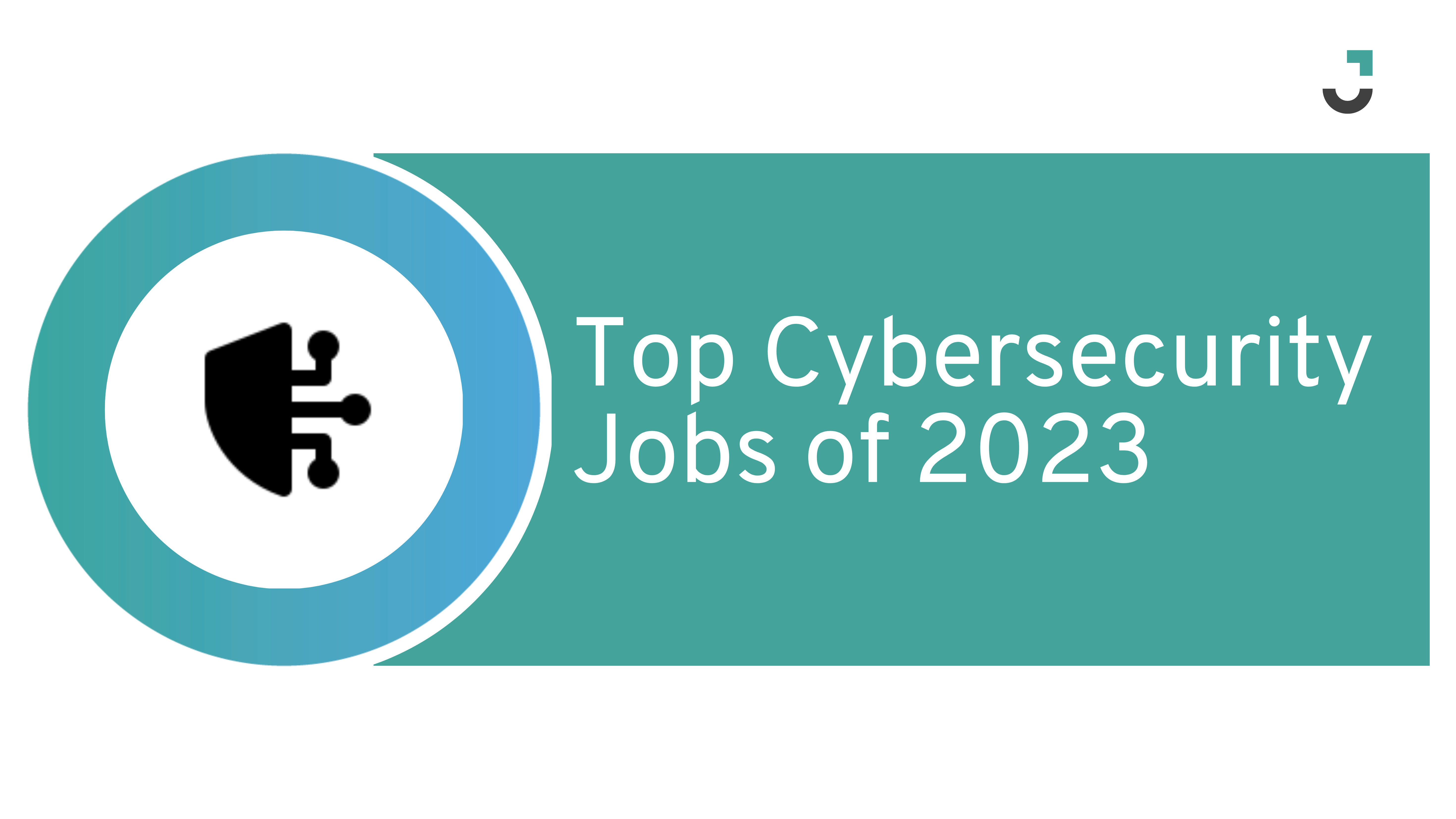The digital world is evolving, and with it, the demand for cybersecurity professionals is skyrocketing. As we tread into 2024, there's no better time to dive into a career in cybersecurity. With a staggering 663,430 job postings for open positions in the United States between May 2022 and April 2023, the industry is ripe with opportunities.
But the question stands - where should you start?
Thanks to platforms like CyberSeek, candidates now have access to detailed data about the cybersecurity job market, enabling informed decisions about career transitions and advancements. Today, we're delving into the top seven cybersecurity job titles that are making waves in the U.S. market. We'll explore everything from education requirements to skill sets and certifications needed to land one of these coveted roles.
High-Paying Cybersecurity Roles and Their Salaries
Based on data from CyberSeek, here's a rundown of the highest-paying cybersecurity job titles along with their average salaries:
- Security Architect: $151,547
- Cybersecurity Manager: $128,665
- Cybersecurity Engineer: $127,094
- Penetration and Vulnerability Tester: $120,662
- Security Analyst: $107,517
- Cybersecurity Specialist: $106,265
- IT Security Auditor: $105,692
However, it's crucial to remember that these figures can fluctuate based on various factors like employer size, geographic location, and individual experience. Curious about your potential earnings? Utilize the CompTIA IT Salary Calculator for a personalized estimate.
Embarking on a Cybersecurity Career: A Step-by-Step Guide
Navigating the realm of cybersecurity demands a panoramic view of the system at large. Professionals in the field must understand the intricate web of cyber threats and how to safeguard against potential breaches. Here's how you can forge your path in cybersecurity:
-
Conduct Thorough Research: Understand the landscape - know where jobs are concentrated, popular job titles, salary prospects, desired certifications, and potential career paths.
-
Evaluate Your Skill Set: Identify your current proficiency in cybersecurity, acknowledge your strengths, and recognize areas needing improvement.
-
Position Yourself in the Cybersecurity Pathway: Obtaining certifications in line with the cybersecurity pathway you have in mind The CompTIA Cybersecurity Career Pathway is designed to equip you with foundational certifications and skills indispensable for a thriving career in cybersecurity. Additionally, begin to work on projects or get involved with the folks who have the job you want. Consider how you can learn from them and bolster your skillset as you gain insights from this area.
-
Obtain Relevant Certifications: Certifications are your golden ticket, serving as tangible proof of your expertise to prospective employers.
Is Cybersecurity a Hard Nut to Crack?
Transitioning into cybersecurity might seem daunting, especially for those hailing from non-technical backgrounds. However, diverse roles such as cyber policy analyst and technical writer can serve as stepping stones into the industry. For individuals with existing technical skills, it's about leveraging those capabilities and identifying how they correlate with cybersecurity demands. Remember, in the tech world, learning is perpetual, and this holds especially true in the fast-paced realm of cyber defense.
The Perks of Choosing a Cybersecurity Career
Opting for a career in cybersecurity is not just about financial stability; it's also immensely gratifying. You'll be the organization's digital sentinel, guarding systems against malicious attacks, conducting risk evaluations, and responding to security incidents.
Educational Prerequisites for Aspiring Cybersecurity Professionals
While some roles demand formal education, CyberSeek provides a breakdown of positions and their corresponding educational requirements. For instance, while 19% of cybersecurity specialist positions require less than a bachelor's degree, a significant 76% of cybersecurity engineer roles call for a bachelor’s degree and 23% for a graduate degree.
Navigating IT Certifications in Cybersecurity
In the sea of IT certifications, some stand out for their value in the cybersecurity domain. These include:
-
The CompTIA Cybersecurity Career Pathway: This comprehensive suite of certifications takes you from basic to advanced levels of cybersecurity expertise.
-
Certified Information Systems Security Professional (CISSP): An advanced credential focusing on cybersecurity management skills.
-
Cisco Certified Network Associate (CCNA): This associate-level certification has several specializations, with the most prevalent being CCNA Security and CCNA Cyber Ops.
-
GIAC: Certifications that span various cybersecurity domains, from defense and penetration testing to forensics and incident response.
Essential Skills for a Cybersecurity Career
Beyond the anticipated security skills, here are some critical competencies that might not immediately come to mind:
-
Linux Proficiency: Given its wide application, expertise in Linux can significantly boost your cybersecurity career. CompTIA Linux+ is a trusted certification to validate these skills.
-
Project Management Acumen: Multitasking is a staple in IT, and honing project management skills can give you an edge. CompTIA Project+ is a recommended certification, renowned for its comprehensive coverage and high ROI.
-
Information Systems Knowledge: Understanding the dynamics of information systems is vital for any cybersecurity professional.
Transitioning into Cybersecurity from Other Domains
Frequently acting as springboards into cybersecurity thanks to skill overlap, these paths often transition to cybersecurity: networking, development, systems engineering, finance and risk analysis, and security intelligence.
Hotspots for Cybersecurity Jobs in the U.S.
According to CyberSeek's interactive map, the top three states for cybersecurity job aspirants are:
- California: 69,213 job openings (Top metro area: Los Angeles)
- Virginia: 61,648 job openings (Top metro area: Washington, DC)
- Texas: 57,878 job openings (Top metro area: Dallas-Fort Worth)
Embracing Remote Opportunities in Cybersecurity
The post-COVID-19 work environment has proven that IT professionals, including those in cybersecurity, can effectively operate remotely. Cybersecurity analyst positions, in particular, offer promising prospects for full-time remote work.
Keeping Your Skills Sharp and Your Prospects Brighter
Make it a habit to revisit and discover new skills or certifications to bolster your appeal as a candidate. If you're in an early career phase and eager to advance, focus on the prerequisites for your dream job. With dedication and the right approach, you'll be well on your way to becoming a cybersecurity connoisseur.
For more insights into cybersecurity or to learn about open cyber opportunities, connect with the Job.com cybersecurity recruiting team. Remember, the digital world waits for no one, and in the realm of cybersecurity, staying updated is not just an advantage — it's a necessity. Stay curious, stay vigilant, and keep learning; your dream cybersecurity job might be just around the corner with Job.com!
Investing in a High-Caliber Cybersecurity Team
For organizations looking to bolster their cybersecurity teams, hiring professionals with the right experience and approach is essential. Partnering with hiring teams that know the industry, products, and technology will help to scale your hiring efforts. Learn more about cybersecurity hiring with Job.com.
Source: Best Jobs in Cybersecurity for 2023 and How To Get One, CompTiA

